To solve the problem of simultaneous search across visited pages, bookmarks, and RSS feeds in all browsers, you can use the HistoryHound application.
Many of us use multiple browsers at the same time. Some use less memory, some have cool AI features, and some have other advantages. But amidst all this variety, it's easy to forget which browser has certain bookmarks or which browser you visited a specific site on that you're now trying to find in your history...
To solve the problem of simultaneous search across visited pages, bookmarks, and RSS feeds in all browsers, you can use the HistoryHound application.
Setup
When you first launch it, you will need to select which browsers to monitor and maintain a unified browsing history. It supports all popular and even some less common browsers: Safari, Firefox, Chrome, Edge, Brave, OmniWeb, Vivaldi, Opera, NetNewsWire, and Orion.
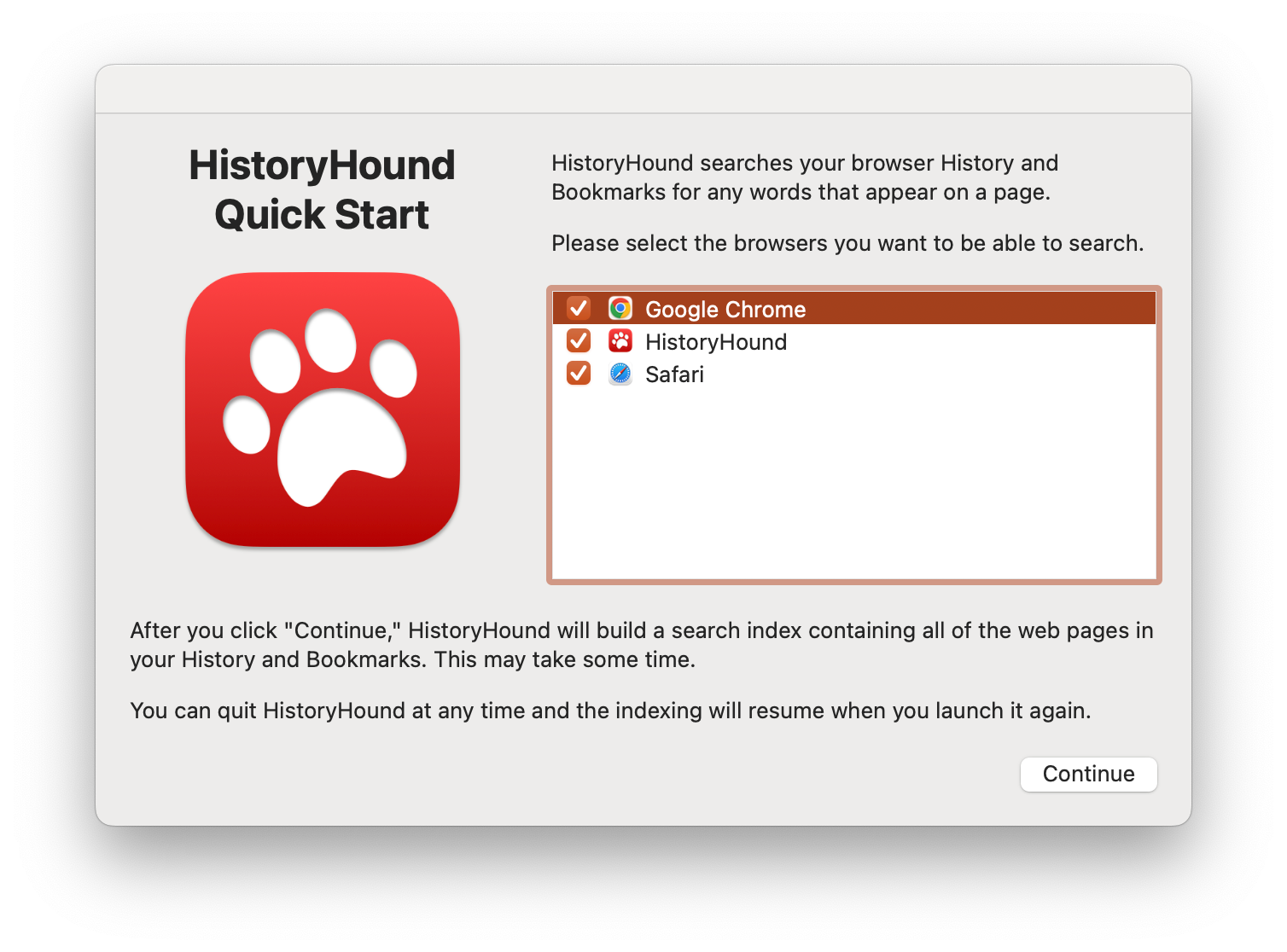
However, don't expect the application to work immediately. Depending on the volume of data, you will need to wait a few minutes for the initial indexing. The indexing status is displayed in a separate window, and you can roughly estimate when it will finish.
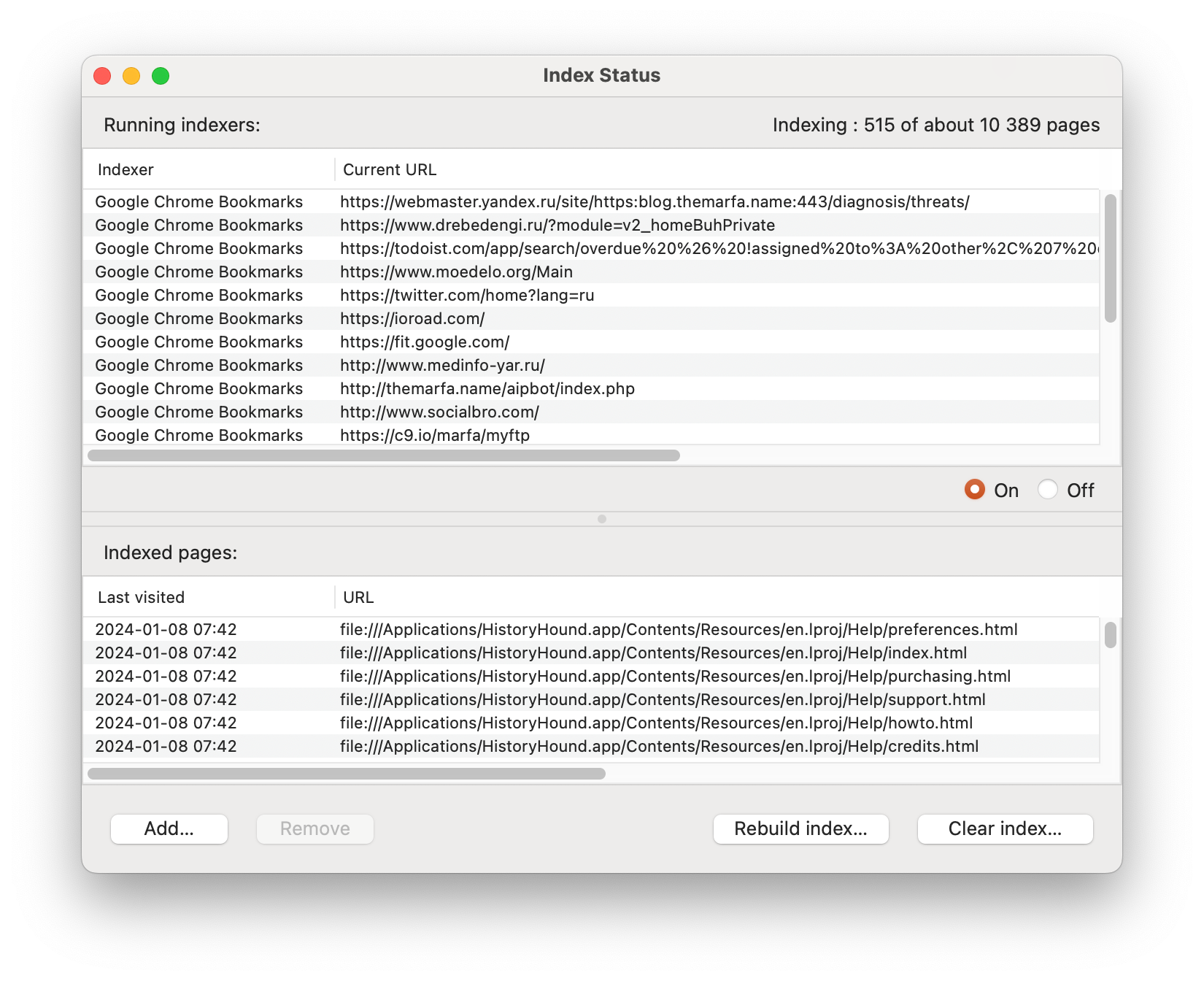
During this time, I recommend going to the settings and changing some parameters if necessary. On the "Searching" tab, you can change the path to the indexed items or disable unnecessary indexing. Additionally, you can set the update frequency and indexing period.
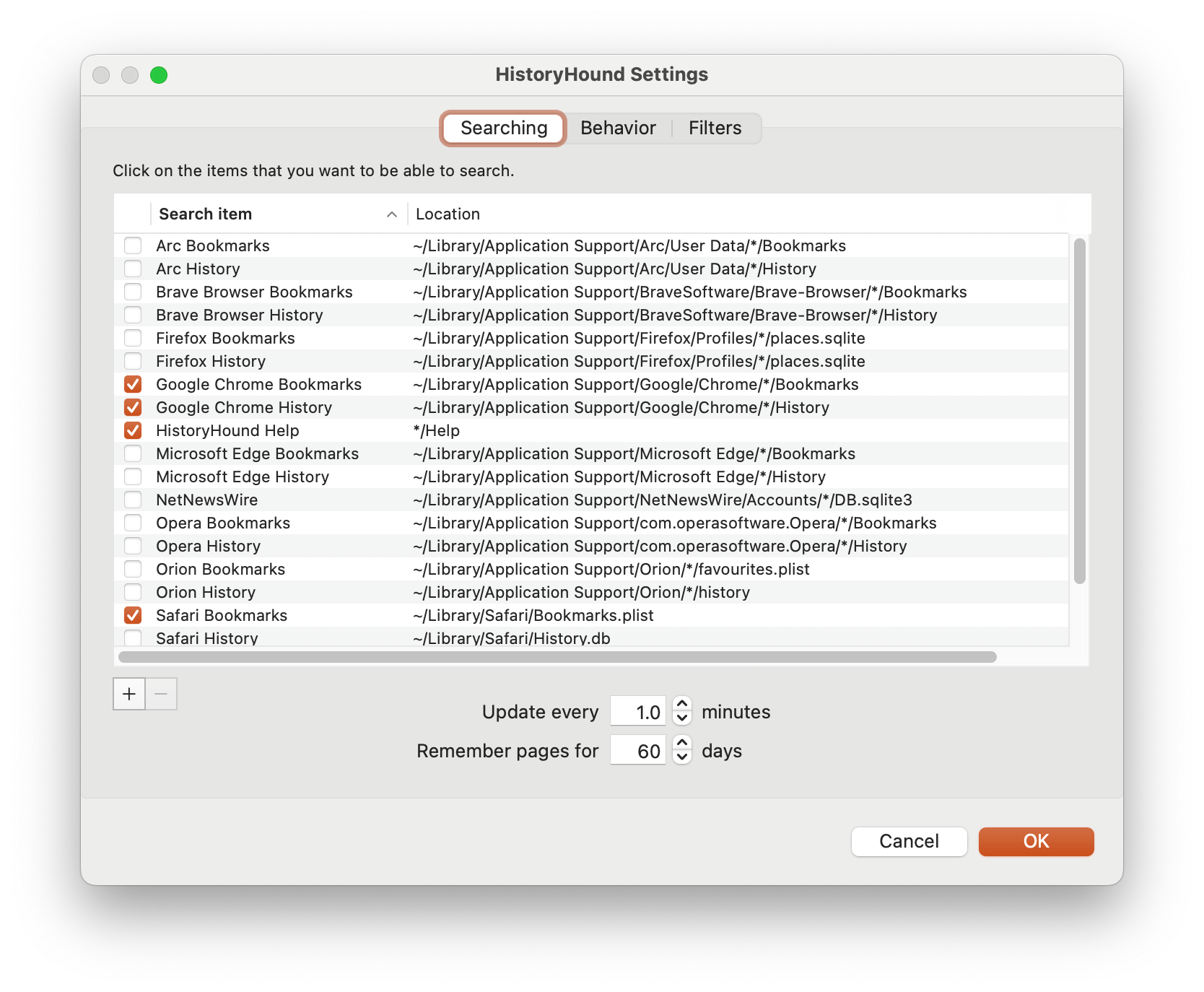
On the "Behavior" tab, you can customize the general behavior of HistoryHound. For example, you can activate live search or set it to search only when you press Enter, set up auto-start parameters, and other similar features.
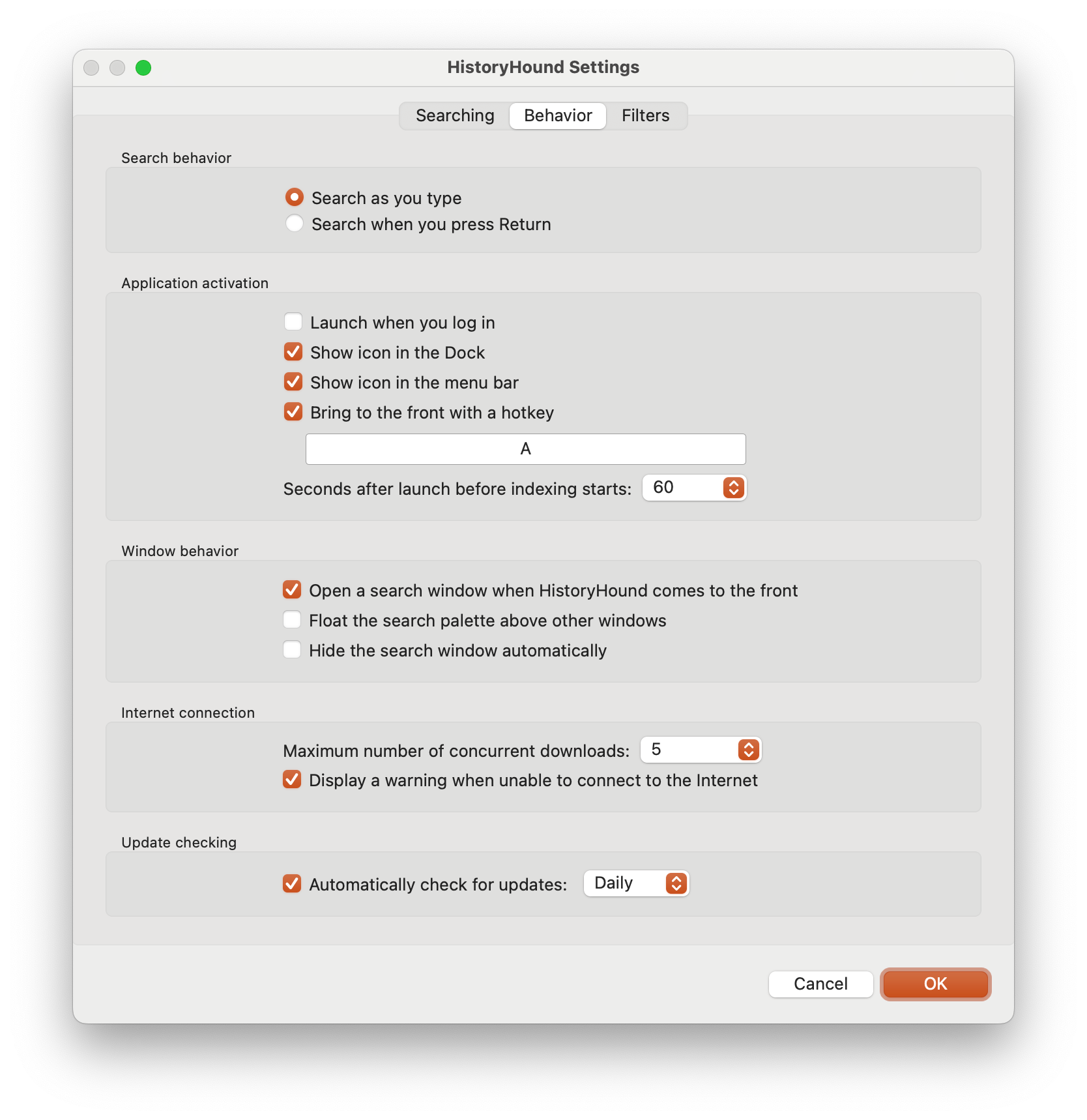
To exclude sensitive pages from indexing, go to the "Filters" tab and add them there. Filtering by mask is supported.
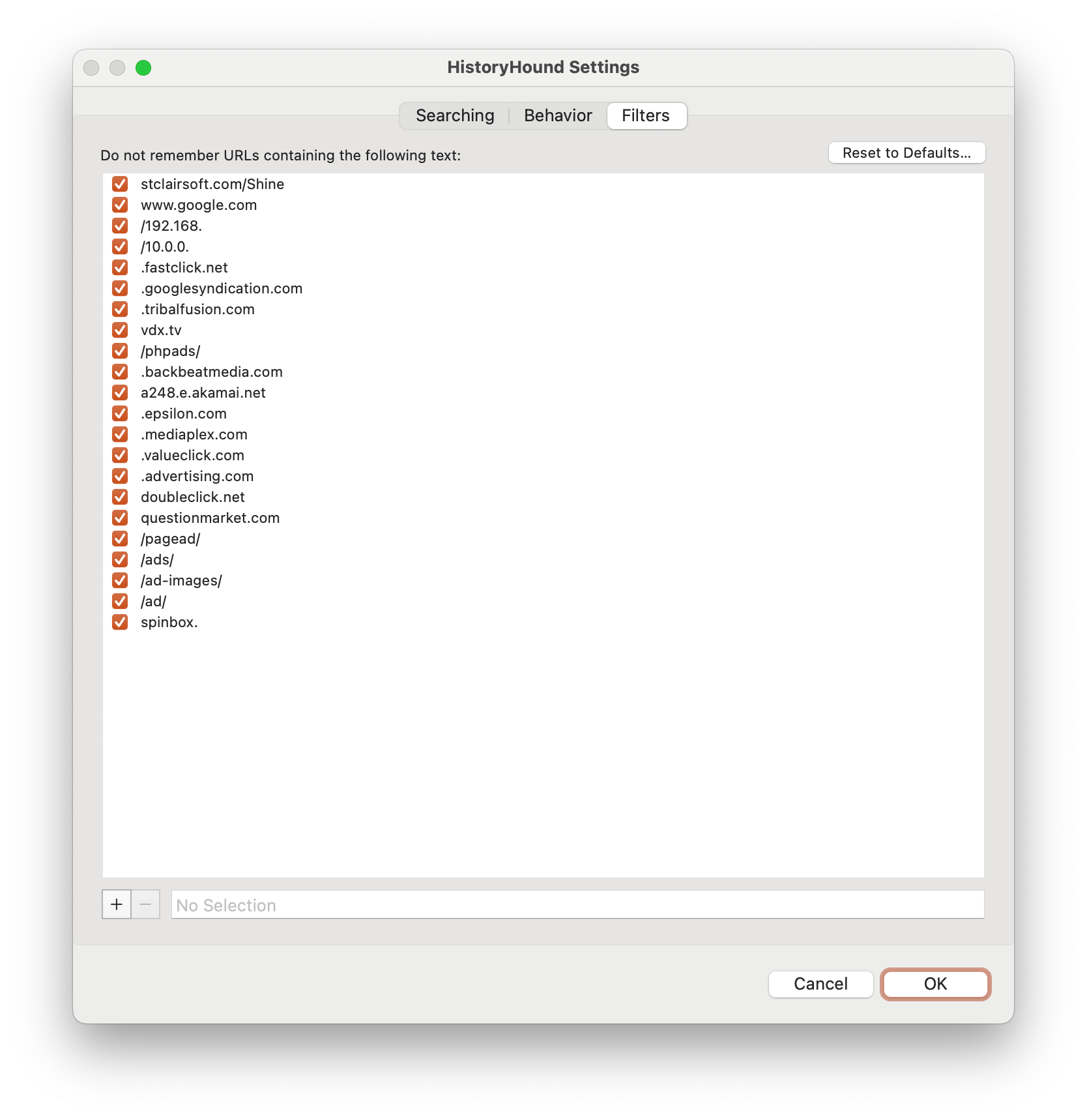
How Searching Works
Searching for data with HistoryHound is very easy. Just enter your search query (mask support is available) and specify additional parameters if necessary, such as the search period or browser. You will then see all the pages that match your query.
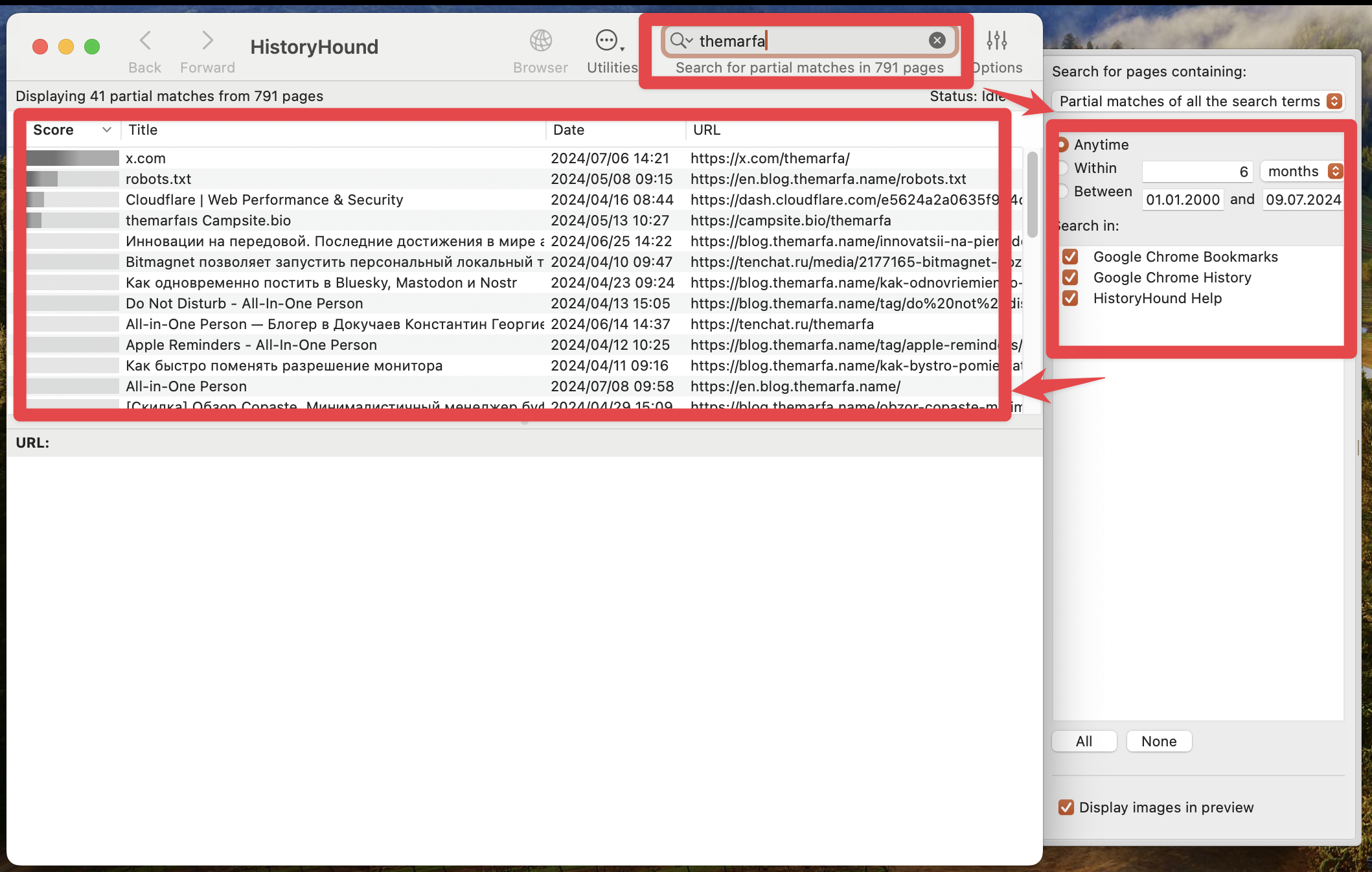
The search has sorting options based on different parameters, but they are quite primitive. Just ascending or descending order.
There is also a parameter called "Score," which is not clearly explained and its exact meaning is unknown.
When you click on a search result, the corresponding page will open below.
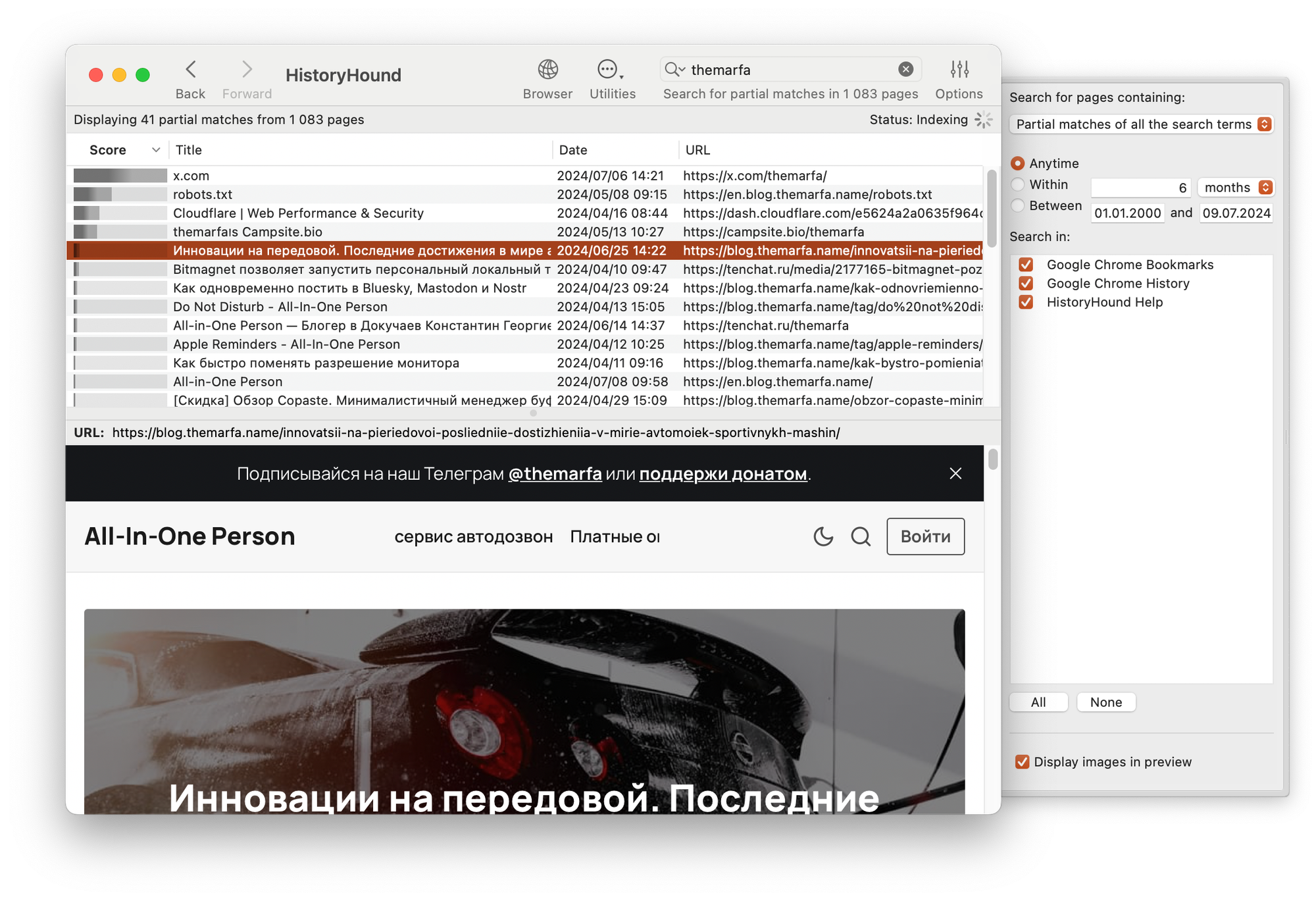
If you right-click on a search result, you can copy the link, open it in the browser, add it to exclusions, delete it from the index, or view all the data that has been indexed.
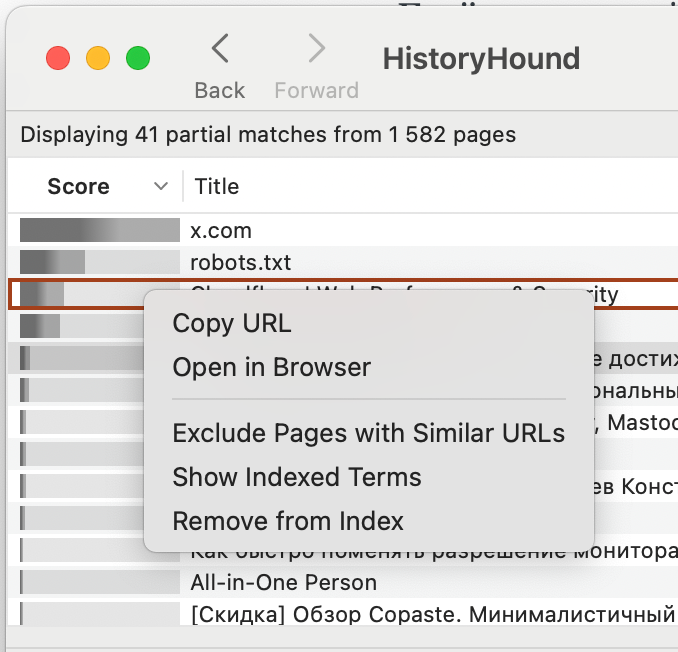
Cost
You can try HistoryHound without restrictions for 30 days. A single-user license costs $14.95, which includes free application updates within one major version. The cost of upgrades is not specified on the website.
